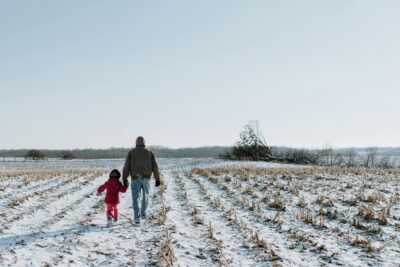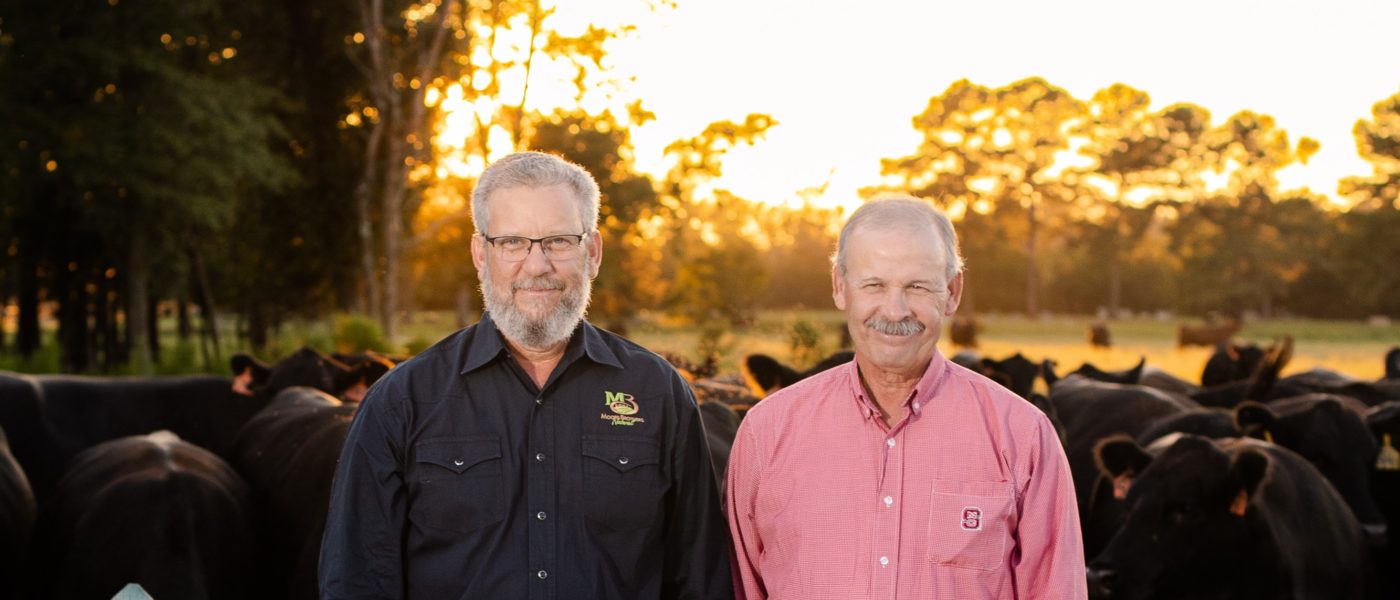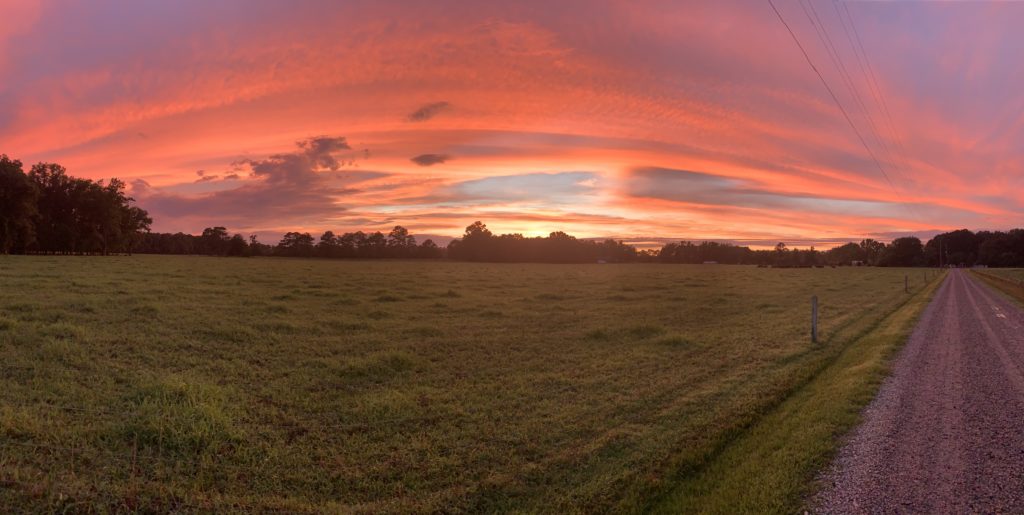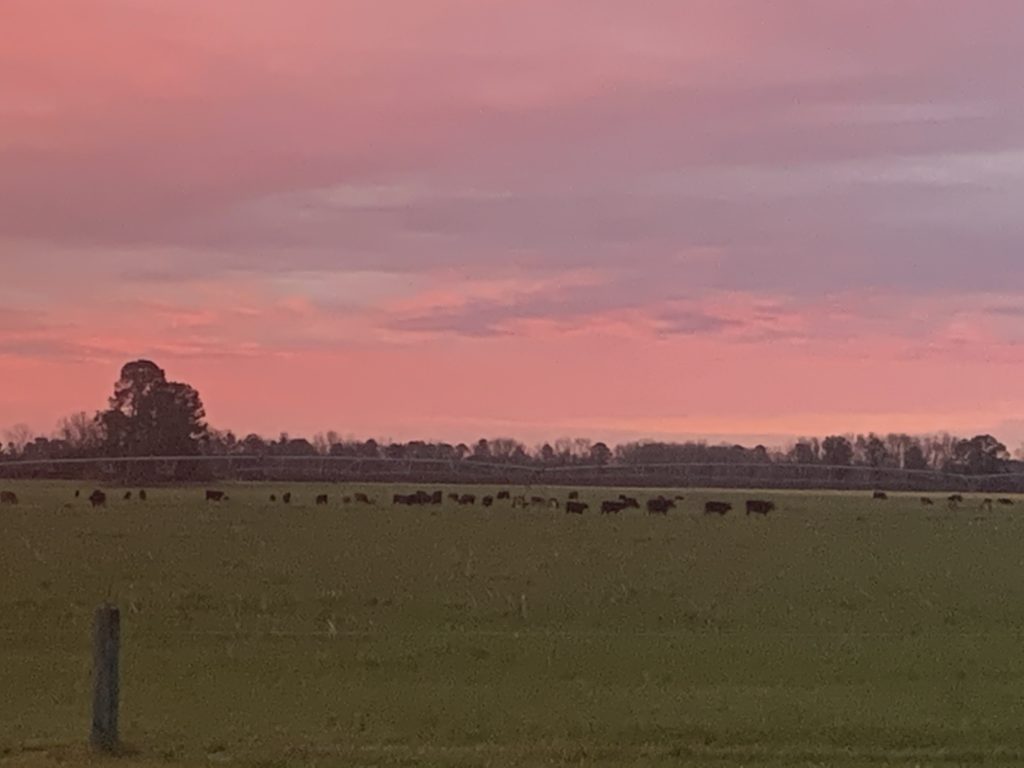When Eddie Moore talks about how he got into farming, he says, “It was just like gravity, I guess, a magnet.” He wasn’t planning on becoming a farmer; he went to college as far away from the farm he grew up on as he could. But he realized he kept looking for a window seat in his classes. By then, his brother, Luther was already back on the home farm, which has been in their family since 1891, farming with their mama, Mrs. Rose. “The inside life was not gonna be the kind of life I wanted,” he decided, so he went back and started farming with his family.
When Eddie was a child, his dad, Harbert, switched from farming to small engine repair and his mama started farming tobacco. Eddie and Luther worked together on the tobacco farm alongside their mama until she retired. Eddie describes growing tobacco as an intense process. “It’s hot, there’s a lot of labor – there might be 20 people around. At the end of the day, you just want to be off by yourself.” Eddie and Luther were raising a few cows for themselves and tending to the cows was a way to have quiet time and unwind. When the tobacco industry started to fall apart in the late 1990s, they decided to shift their farming operation to natural beef production.
The Moore brothers now manage about 1,500 acres of crops, pasture and hay. They grow corn, soybeans and oats, and have 100 acres of pasture and 100 acres for hay. Some of the grains and all of the hay and pasture are for the cows. In fact, only 5% of what they feed the cows—a vitamin supplement—comes from outside their farm. The cows spend their whole life on pasture, though it’s a smaller pasture as they age. But they can still run, Eddie says, “Or do whatever they want to do, pretty much.”
In general, Eddie takes care of the cattle, and his brother takes care of the row crops, though they cover for each other if one of them needs a day off. On a typical day, Eddie gets out to the pasture at 6 or 7 am to check on the animals and feed them. By mid-morning, he moves onto other tasks. In late summer and into fall, that means harvesting the corn into the evening. Other times, he’s bringing his live animals to a processor, or picking up the finished product that they then sell.
“I think having a local food system will give us an insurance plan as the climate changes… We need a more resilient food system that family farms can be a part of.” — Eddie Moore
About half the beef they sell directly to customers at their small farm market, and the other half is sold wholesale to restaurants and stores. Before the pandemic, more of their business was wholesale. “Since the pandemic, it’s been a whole different box, of course,” says Eddie.
When restaurants shut down, that part of their business also shut down temporarily. But when grocery stores started running out of meat, Eddie says, “We had more beef probably than anyone in Robeson County there for a few days.” At their busiest, there were 80 customers at the farm market at one time. Many of those customers are still buying directly from the Moore brothers.
With the move from tobacco to naturally raised beef, Eddie has had to learn an entirely new skill: marketing. He’s confident that once people try his beef, they will come back for more. He explains his marketing philosophy this way, “The first-time people buy; they buy with their eyes or their ears [meaning: how good something looks or sounds in marketing]. But the second time, they buy from their experience: their taste and enjoyment.” The increased direct customer base from the height of the pandemic has proved this out. Eddie says, “I’d put our quality against anybody anywhere, and I think that’s what most of our customers find and they decide it’s worth it.”
Eddie believes that smaller, local farms, are key to helping communities navigate climate change, too. Eddie thinks that farmers and individuals have a role to play in lessening their impacts on the climate. “What I’m more concerned about is how farmers adapt to the changing climate,” he says. “How are we gonna produce as the climate changes?” As the climate changes, farms are going to need to adjust quickly, and smaller farms can do that more easily. The importance of a resilient local food system that can adjust quickly became very clear during the pandemic.
“I think having a local food system will give us an insurance plan as the climate changes. The whole food system is built on cheap transportation… What happens if transportation costs become a prohibiting factor in profitability,” he asks. Eddie points out that their farm model, where almost all of the feed comes from their own land, the beef is processed locally and the meat is sold locally, is more protected from these transportation cost fluctuations. An added benefit is that they are burning less fossil fuel in the process. “We need a more resilient food system that family farms can be a part of.”
As Eddie sees it, smaller family farms (he defines family farms as farms where the majority of work is done by family, but “family” can mean anyone you are close with) are an insurance policy for our communities to ensure that we have food as the climate changes. But family farms are being pushed out. He believes we can reverse that trend by making adequate investments in small farms. He explains, “They need to have access to friendly term capital, so that farmers can have flexibility on payments. That’s the key to allowing the next generation to keep the family farms moving.”
Eddie has experienced the frustration of lack of access to friendly capital. He’s an enrolled member of the Lumbee Tribe of North Carolina. “I think racial justice is when there’s equal opportunities,” he says. “I know the Native people have not had equal opportunity. I know it has been a disadvantage in a lot of situations to be Native. That tide has changed somewhat… there are more opportunities now. There is an effort by the mainstream to include Native people into what’s going on. I think it’s great,” he explains.
But that hasn’t always been the case. “There needs to be racial justice” Eddie says. “Native farmers are very, very few, and mostly operating family farms. So, it would look like something that was worth protecting and giving some opportunities.”
Eddie has pushed for years to have lending institutions, especially those who are part of or sponsored by the U.S. government (like the Farm Service Agency or Farm Credit) to have boards and employees that represent the communities they are making lending decisions for. “Robeson county, if you look at USDA [census information], is a hotbed for Native farmers east of the Mississippi,” he explains. He has served on the North Carolina Small Grain Growers Board for 7 years, and also on the board of the National Association of Wheat Growers. These experiences showed him how important boards are for how organizations respond to farmers, and that minority farmers need a seat on farm credit boards. “These organizations need to reflect the diversity of the communities they serve,” he proclaims.
As for his plans for the future, Eddie says simply that he hopes, “Not to go broke.” But that hasn’t been easy in the past. “Last year was a great year; this year’s been a lot different. It’s about as big a swing from one way to the other that I’ve ever seen in two consecutive years.” He hopes to eventually pass his land along to the next generation.
Most of the next generation are working in farming or agriculture businesses. Eddie’s oldest son, Lee, is running his own farm, which he started last year. Eddie doesn’t ever plan to quit farming altogether, but he does plan to slow down. “A lot of people got a 9-5 job, and we got a 5-9 job!” His hope is that he will be able to stick around and help out on the farm just like his mama did with Luther and Eddie.







